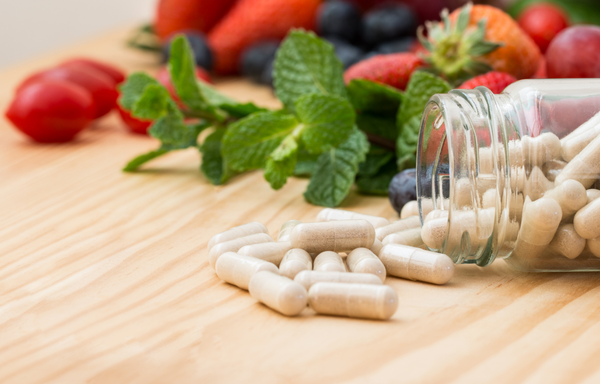

Inositol and PCOS: What You Need to Know
If you’ve been researching PCOS treatments, chances are you’ve come across inositol. It’s often touted as a game-changer for hormone balance, insulin resistance, and even fertility. But what does the research actually say?
Let’s break down what inositol is, how it works, and what you need to know before adding it to your routine.
What is Inositol?
Inositol is a type of carbohydrate, sometimes referred to as vitamin B8 (though it’s not actually a vitamin). It plays an essential role in cell signaling, insulin sensitivity, and hormone regulation.
There are several forms of inositol, but the two most relevant for PCOS are:
- Myo-Inositol (MI): The most abundant form, crucial for insulin signaling and ovarian function.
- D-Chiro-Inositol (DCI): A less common form that helps regulate glucose metabolism and androgen levels.
The best results for PCOS come from a 40:1 ratio of Myo-Inositol to D-Chiro-Inositol, which mimics the natural balance found in the body.
How Does Inositol Help PCOS?
Research has shown that inositol can support PCOS management in several ways:
- Improves Insulin Sensitivity: Inositol helps cells respond better to insulin, reducing overall insulin resistance.
- Balances Hormones: It can lower testosterone levels, which helps with symptoms like acne, hair loss, and excess hair growth.
- Supports Ovulation and Fertility: Studies suggest that inositol can promote regular ovulation, making it a popular choice for women trying to conceive.
- Reduces Sugar Cravings and Mood Swings: Since it helps balance blood sugar, some people find that inositol helps with cravings and emotional stability.
While these benefits sound promising, there’s an important reality check needed here.
Inositol Isn’t Magic—It’s a Tool, Not a Standalone Solution
While inositol has benefits, it doesn’t outperform a Low Insulin Lifestyle.
We’ve compared this way of eating to metformin in clinical studies, and the results showed that a Low Insulin Lifestyle was superior in reducing insulin levels, improving heart health, and supporting weight loss without calorie restriction.
So while inositol can be helpful, it should never be seen as a replacement for dietary and lifestyle changes. If you want to take inositol, think of it as a supportive tool, not a standalone fix.
The foundation of real, lasting change starts with what you eat and how you manage insulin.
How to Take Inositol (Without Wasting Money)
If you want to try inositol, you don’t need to spend a fortune on expensive branded supplements.
What matters most is the correct 40:1 ratio of Myo-Inositol to D-Chiro-Inositol. This is the ratio found naturally in the body, and research suggests it’s the most effective balance for PCOS.
- Avoid overpriced brands (you’re just paying for the brand name).
- Stick to high-quality powders or capsules with the right ratio.
- Take consistently for at least 3-6 months to see benefits.
Final Thoughts: Should You Take Inositol for PCOS?
Inositol can be a helpful addition to your PCOS management plan, but it’s not a magic pill. If your insulin levels are high, the best way to bring them down is through a Low Insulin Lifestyle—something that has already been proven to work better than metformin in clinical research.
If you choose to take inositol, use it as a tool to support insulin balance—not as a substitute for real dietary changes.






















